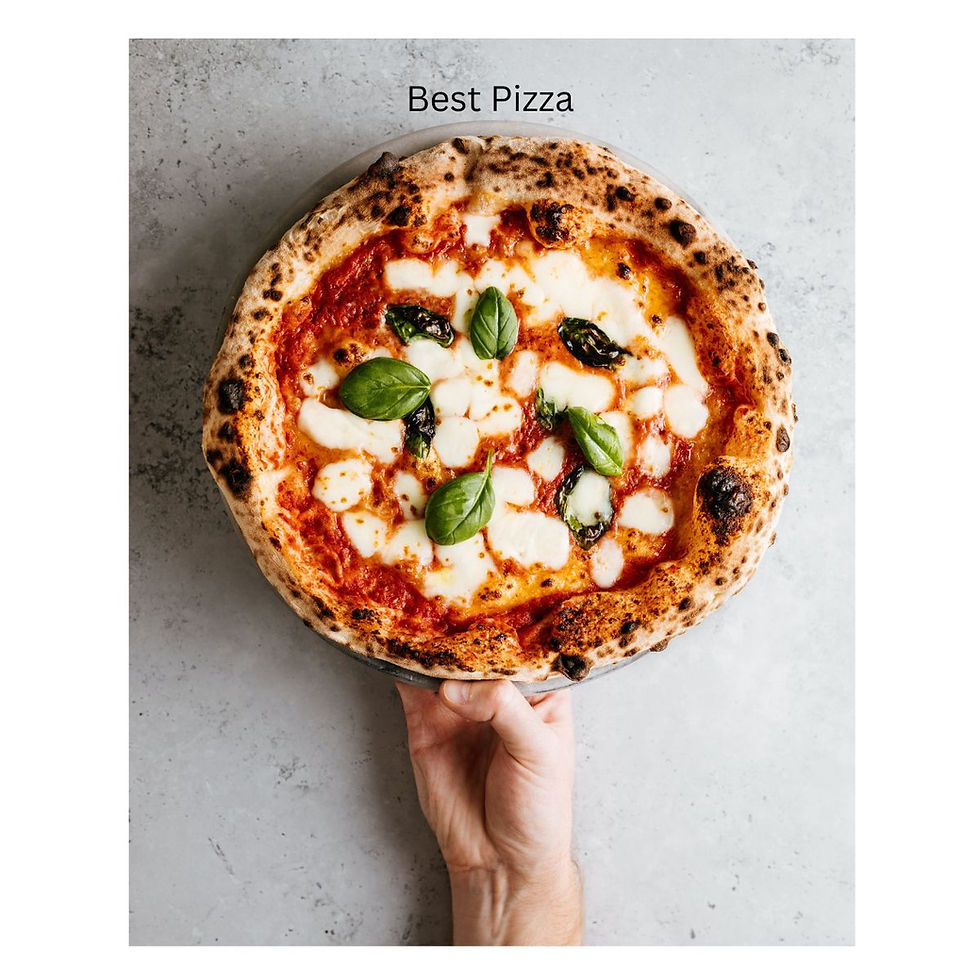The Power of Focus: Why the Best Restaurants Master Less, Not More
- Chef Junnie Lai
- Nov 10, 2025
- 3 min read
During our culinary research and travels across Asia and Europe this year, one truth stood out in every memorable dining experience: the most successful restaurants are the ones that know who they are. They understand their passion, their strengths, and their purpose — and they express it through a focused, minimal menu.
From the narrow alleys of Tokyo to the cobblestone streets of Rome, we observed restaurants with only a handful of dishes, yet the line of guests stretched endlessly. People weren’t coming for variety; they were coming for mastery.
1. Simplicity Creates Culinary Excellence
When a restaurant dedicates itself to only a few dishes, every element — from sourcing to preparation to presentation — becomes refined to perfection.
Take Ichiran Ramen in Japan, for example. Their menu revolves around one signature bowl: tonkotsu ramen. Guests don’t come for options; they come for perfection — broth simmered for hours, noodles calibrated to seconds. Every detail is tuned because the kitchen isn’t juggling 20 other cuisines.
In Europe, Da Michele in Naples is world-famous for offering only two pizzas: Margherita and Marinara. For over a century, guests have lined up outside its doors. Likewise, Padella in London focuses almost entirely on handmade pasta — just a few variations, all freshly made before your eyes. The result: consistency, confidence, and cult-like customer loyalty.

2. Focus Simplifies Operations and Strengthens Cost Control
A focused menu translates into simpler, smarter operations:
Lower inventory costs and less food waste.
Predictable margins and efficient purchasing.
Faster service during peak hours.
Just as importantly, it streamlines staff and cook training. When a kitchen repeats the same few dishes daily, muscle memory takes over. Cooks become experts faster, consistency improves, and new hires integrate smoothly. Instead of spreading skill thinly across a large menu, every member of the team becomes a master of the restaurant’s core identity.
In Singapore, Tian Tian Hainanese Chicken Rice became a national icon by serving one dish with perfection. In London, Dishoom built its reputation around a concise Indian-inspired menu, focusing on flavor authenticity and operational flow. The result? High volume, consistent quality, and loyal customers across continents.
3. A Clear Message Builds a Stronger Brand
A focused menu communicates a clear message to diners: “This is what we do best.”It builds trust and a powerful brand identity.
Think of Din Tai Fung — what began as a small dumpling house in Taipei became a global brand synonymous with one product: xiao long bao (soup dumplings). In Paris, Le Relais de l’Entrecôte perfected the art of doing just one dish — steak frites — served with their signature secret sauce. No menus, no confusion, just pure confidence in what they do best.
This clarity turns first-time guests into ambassadors and creates a word-of-mouth reputation that no marketing budget can buy.

4. Longevity Through Identity and Consistency
Restaurants that stand the test of time know their identity. They don’t chase trends; they create them through timeless quality.
A narrow, well-defined concept also allows for better scalability. Whether you open a second location or expand internationally, a concise menu ensures that your culinary DNA remains intact — from Tokyo to London to Los Angeles.
5. The Trade-Off: Not for Everyone — But Perfect for the Right Ones
A small menu won’t appeal to everyone — and that’s okay. The goal isn’t to feed everyone, but to deeply satisfy the right audience. Guests who love your specialty will come back for that same experience again and again.
Limiting your menu means defining your tribe — and once you do, loyalty follows naturally.
In the End: Depth Over Breadth
Across our travels, we found that the restaurants that thrive are those that master depth over breadth. They pour their energy into a few offerings and elevate them from meals to memorable experiences.
In a world of endless options and fleeting trends, simplicity is the new sophistication. The restaurants that dare to do less — and do it brilliantly — will continue to stand out, serve well, and stand strong.









Comments